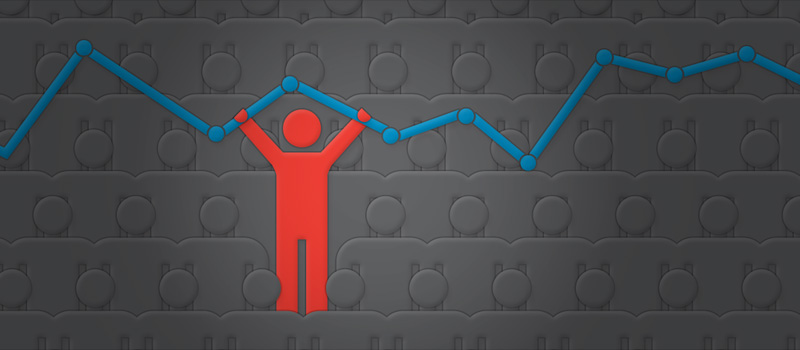Analytics Add Up to Big Success
09.11.12 · Greteman Group
Sixth in a Series
Analytics involves crunching numbers. Lots of numbers. And looking at endless pie charts. This sort of thing may make your eyes glaze over, but it’s vital to your website’s success. Because if you don’t know who’s coming to your site and what they’re doing while they’re there, you can’t make your site better. So bring out your inner geek and get to work. Or find a geek you trust to review and interpret for you.
Set your Geek-O-Meter to Yes/No mode and honestly assess your practices.
• You use analytics to track activity and show ROI for your marketing.
• You know where most of the traffic to your website comes from.
• You use a calls-to-action on each page to better engage visitors.
• You set aside time each month to analyze your analytics.
• You adjust your strategy and content based on your analytics findings.
The Analytics Advantage
Analytics show you what parts of your site are underperforming, and give you clear pointers on how to address those deficiencies. For example, knowing the number of visitors coming from mobile devices helps you decide how much of your resources to devote to mobile development. Knowing what social media sites are driving traffic your way allows you to make sure you’re a part of the conversation on those sites. If you’re purchasing online advertising on other websites, you need to know whether those ads are actually driving traffic to your site.
Measurement Tools
You may decide you can’t get what you need without paying for more sophisticated analysis. But you should start with one of the popular and free analytics providers and see how far that takes you. For many businesses, they provide all the information you really need. Here are a few to consider.
• Google Analytics
• Clicky
• STATCOUNTER
• Piwik
• Woopra
• JAWStats
• Site Meter
• FireStats
• MochiBot
• Gostats
• Alexa
• Histats
• 4Q
• Yahoo! Web Analytics
• Grape Web Statistics
Not Just a Traffic Report
The annoyingly chipper morning drive time traffic reporter may get away with merely tracking flow, but that model won’t serve you well online. Website analytics are more than just a tool to measure web traffic. They also help you better understand your business, customers and potential customers. It’s critical to know how often, when, where and with what platforms customers are engaging with your business, because you need that information to make smart choices when plotting strategy or designing your marketing materials.
Take our website scorecard test and see how your site stacks up.
Next week: SEO.
